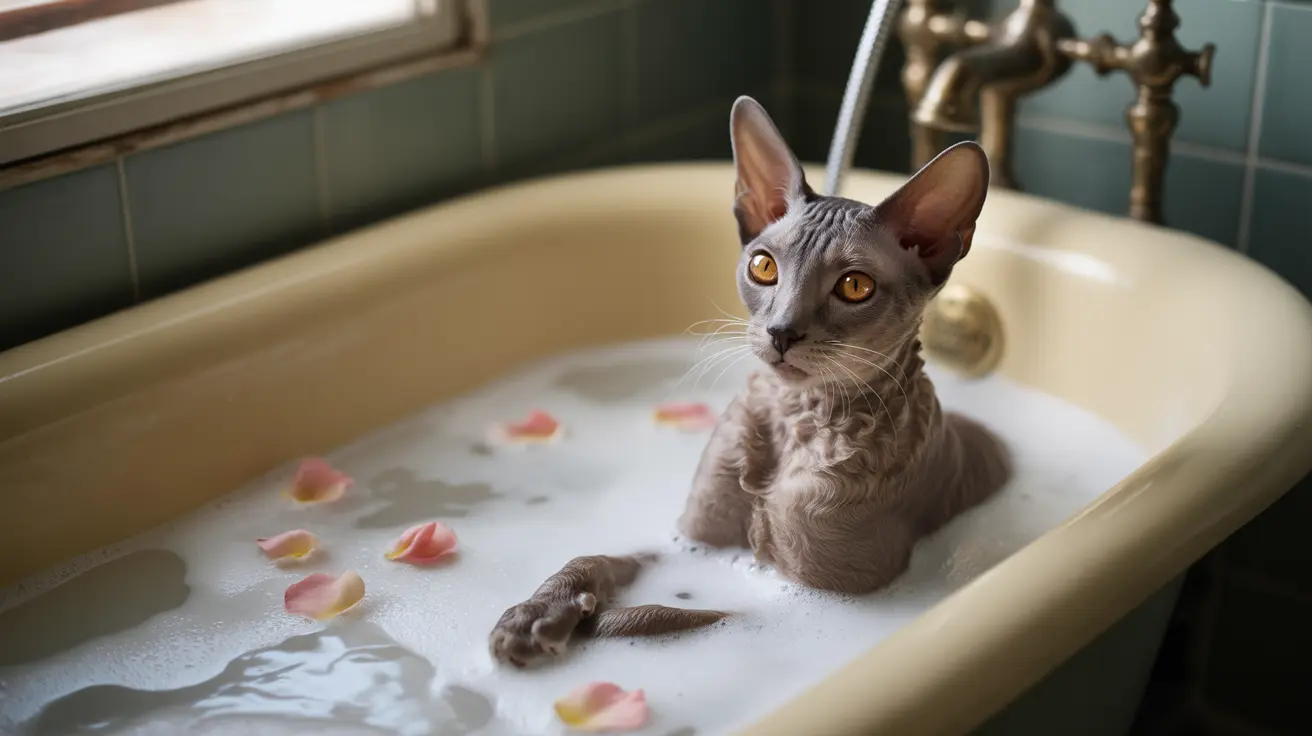Understanding Cat Skin Irritation
Before diving into remedies, it's crucial to understand what might be causing your cat's discomfort. Common triggers include allergies, parasites, dry skin, and environmental irritants. Identifying the root cause can help you choose the most effective treatment approach.
Safe and Effective Home Remedies
Oatmeal Treatments
Oatmeal is one of the gentlest and most effective natural anti-itch remedies for cats. You can create a soothing bath by grinding plain, unflavored oatmeal into a fine powder and mixing it with warm water. For cats who dislike water, make a paste and apply it directly to irritated areas.
Coconut Oil Applications
Pure, organic coconut oil offers both topical and internal benefits for itchy cats. Its antimicrobial properties and rich fatty acid content help moisturize dry skin and reduce inflammation. Apply a small amount to affected areas, ensuring your cat doesn't lick off excessive amounts.
Dietary Supplements for Skin Health
Supporting your cat's skin health from the inside out can significantly reduce itching. Omega-3 fatty acid supplements, particularly from fish oil, can help strengthen the skin barrier and reduce inflammation. Always consult your veterinarian about proper dosing.
Natural Cooling Solutions
Herbal Remedies
Chamomile and calendula teas, cooled to room temperature, can be applied as gentle sprays to soothe irritated skin. These herbs have natural anti-inflammatory properties that can provide immediate relief.
Cooling Compresses
A simple cool compress can offer immediate comfort to itchy areas. Use a clean cloth dampened with cool water, or try green tea-soaked compresses for added anti-inflammatory benefits.
Preventive Measures
Regular grooming, maintaining a clean environment, and using pet-safe cleaning products can help prevent skin irritation. Consider using air purifiers to reduce airborne allergens and washing your cat's bedding weekly.
When to Seek Veterinary Care
While home remedies can be effective for mild cases, certain symptoms warrant professional attention. Contact your veterinarian if you notice:
- Severe or persistent scratching
- Open sores or bleeding
- Hair loss
- Changes in behavior or appetite
- Signs of infection
Frequently Asked Questions
What are safe and effective home remedies to relieve my cat's itchy skin?
Safe home remedies include oatmeal baths, coconut oil applications, cool compresses, and diluted chamomile tea sprays. These natural solutions can provide relief while being gentle on your cat's sensitive skin.
How can I use oatmeal or coconut oil to soothe my cat's skin at home?
For oatmeal, create a fine powder and mix with warm water for a bath or paste. With coconut oil, apply a small amount directly to irritated areas, being careful not to use too much as excess can be greasy and potentially upset their stomach if licked.
Are natural treatments like apple cider vinegar or aloe vera safe for itchy cats?
While these can be effective, they must be used with caution. Always dilute apple cider vinegar and use only pet-safe aloe vera gel. Never apply these remedies to open wounds or allow your cat to ingest them.
When should I take my cat to the vet for persistent itching despite home remedies?
Seek veterinary care if itching persists for more than a few days, if you notice skin changes, hair loss, or if your cat seems unusually distressed. Professional evaluation is crucial for determining underlying causes and appropriate treatment.
How can dietary supplements like omega-3 fatty acids help prevent or reduce my cat's itching?
Omega-3 supplements support skin barrier function, reduce inflammation, and promote overall skin health. They work best as part of a comprehensive approach to skin care, including proper nutrition and external treatments.
Final Thoughts
While natural anti-itch remedies for cats can provide significant relief, remember that they work best for mild cases and as part of a broader treatment plan. Always monitor your cat's response to any new treatment and consult with your veterinarian when in doubt about the best course of action for your pet's specific needs.






